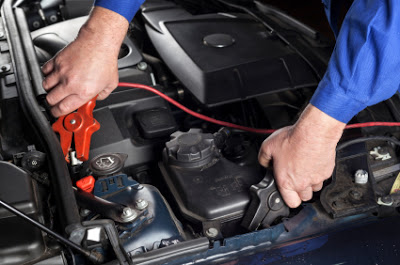
Regardless of if you’re a car enthusiast or not, there are certain things that you will need to buy for your car. You don’t have to spend hundreds on expensive leather seating or the latest high-tech features.
These things are lovely to have, but they aren’t essentials. They’re not going to save you if your car breaks down on a busy highway!
However, there is a list of items that will definitely come to the rescue if your car happens to break down or malfunction. Items that will help you deal with unforeseen issues while you’re driving.
Some of these items will spring to mind immediately when you think of emergency car supplies. Whether you know much about cars or not, you could probably guess that having a first aid kit in your car is a good idea. However, there are plenty of things that are less obvious to the average driver, such as jump leads or thermal jackets.
To make sure you are fully covered in the event of an emergency, here are some important things that every car owner should have in their vehicle.
Driver’s Manual
When you purchase a new car, you will be given a manual that contains details about the vehicle. If like many, you put this manual in the back of a drawer somewhere in your house, it might be time to retrieve it!
The driver’s manual will give you information about the recommended fuel levels, driving safety, rules and regulations, and details about the specifics of the vehicle model.
Keep your manual in the glove box of your car so you can refer to it while you’re driving if necessary.
Driver’s License and Associated Paperwork
A surprising number of people don’t carry their driver’s license around with them while in the car, but you should always keep your license and any associated paperwork to hand if you’re driving.
If a police officer pulls you over to the side of the road, they might ask to see your driver’s license. Even if you’re legally licensed to drive your vehicle, they may take further action if you can’t prove it.
Keeping the right documentation in your car will avoid any issues if you are pulled over by an officer. As with your driver’s manual, keep your license papers in the glove box so they’re always available if needed.
Oil Additive
A petrol or diesel oil additive can be used to improve your vehicle’s performance and extend the lifespan of its engine by up to 50%. Additives can enhance your car’s fuel economy and reduce engine noise, making your driving experience cheaper and more enjoyable.
Oil additive works by providing lubrication for your engine, maximizing its function. It reduces friction between the various moving parts of the engine, which prevents long-term corrosion and build-up of sludge.
Over time, your motor oils naturally degrade and this results in a low-quality oil that lacks important additives. By supplementing your engine with a high-quality oil additive, you can improve performance and protect your engine.
It’s important to use the right type of oil additive for your car’s engine so you can maintain the functionality and efficiency of your vehicle for as long as possible.
Keep a bottle in the trunk to apply every few months so you can get as many years out of your car as possible and reduce the risks of your engine malfunctioning in the middle of a long drive.
Tire Pressure Gauge
Believe it or not, your tires should be inflated to a specific level by law. Driving around with a flat tire is not only an inconvenience, but it’s also a hazard waiting to happen.
It’s not always obvious when your tires are starting to deflate, but having a tire pressure gauge to hand enables you to check how inflated each of your tires is so you can pump them up if required.
Keeping your tires at their correct inflation levels will extend their lifespan and increase the fuel economy of your vehicle.
Jump Leads
If your car battery dies mid-drive, jump leads can be a lifesaver. You will need to flag down another driver to supply the necessary energy to jumpstart your own engine, but, hopefully, somebody will be willing to help out a stranded stranger.
If not, you can rely on an emergency battery booster, which connects in a similar way to jump cables, but they can spark the battery without relying on another car’s engine.
It’s a good idea to read up about how to jumpstart a car as this isn’t something you learn in your driving lessons. Remember that each car is different so try to familiarize yourself with your own vehicle.
Jump leads are small and light so they can be easily stored in your trunk. They’re also very affordable, with most auto stores stocking them for less than $20.
If you find your car’s battery is dying more often than usual, it can indicate a more serious issue. Take your vehicle to a professional mechanic if you’re worried. It might be that your vehicle needs a brand-new battery.
Spare Clothes
If you’re on a long-haul journey and your car breaks down in the middle of a long highway or connecting road, it could be hours before your breakdown cover company reaches you, especially if it’s during nighttime hours.
When you’re stuck in the cold on the side of the road, having some warm clothes to hand will keep you warm until help arrives. They will also be helpful if you’re soaking wet from waiting in the pouring rain or snow.
Most people choose to keep a thermal jacket, thick joggers, gloves, and a scarf in their car for emergencies. You might also want to keep a blanket for extra warmth.
